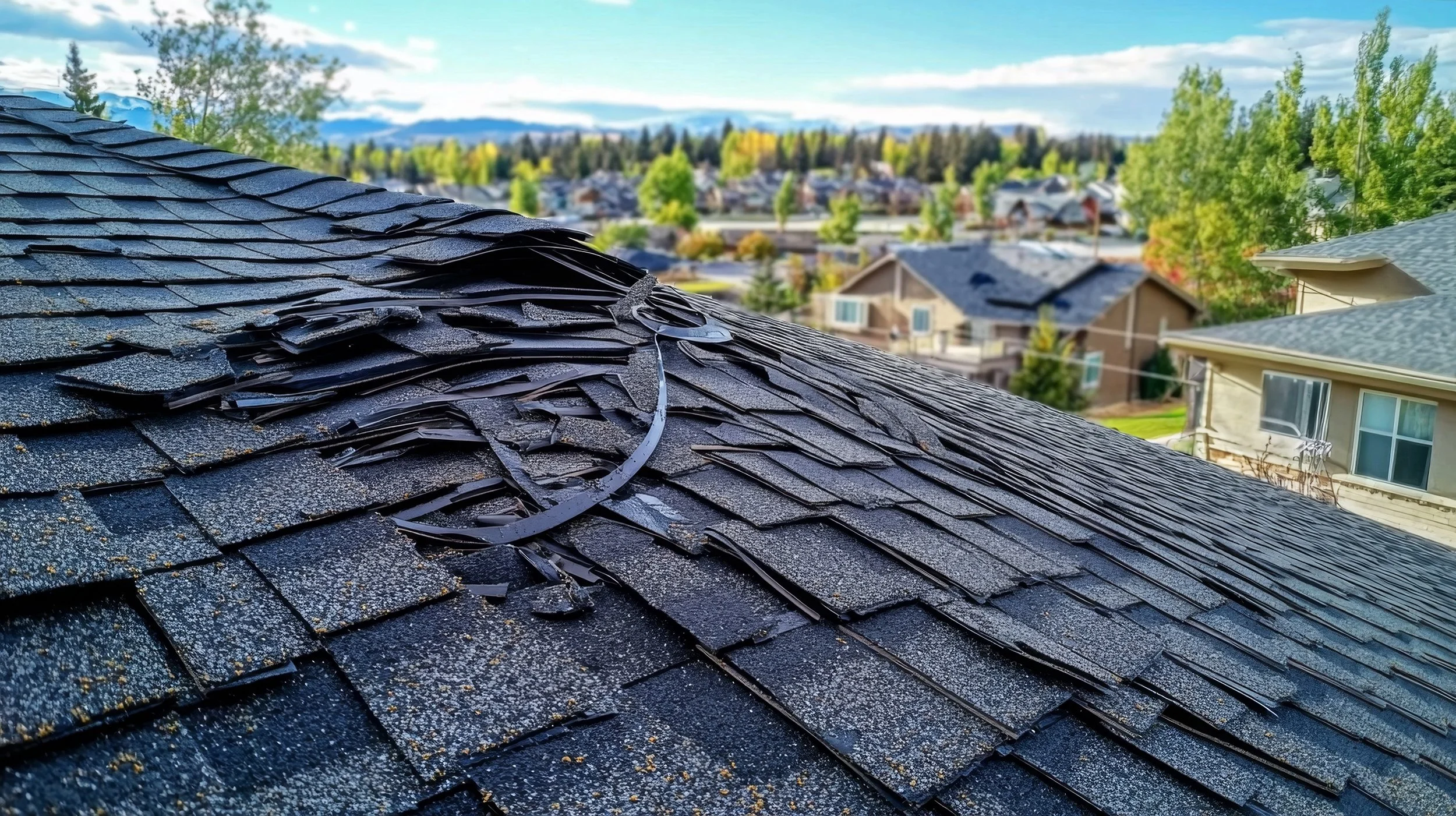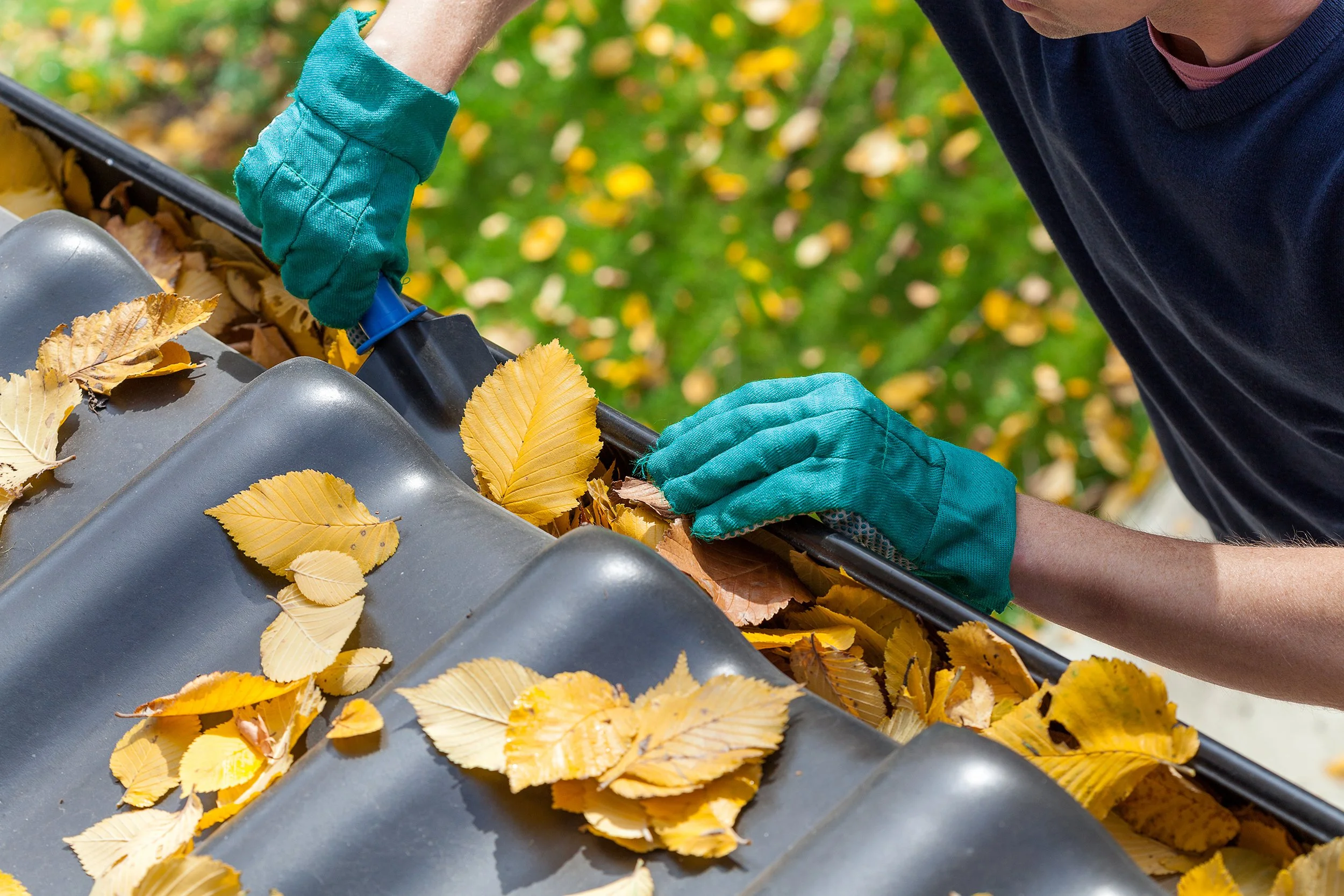Year-Round Guest House Maintenance: A Boulder Homeowner's Checklist

Your Airbnb listing practically writes itself—"Charming Boulder guest house with stunning Flatiron views, rustic mountain charm, and Instagram-perfect sunsets." The photos look amazing, the bookings are rolling in, and you're already counting your passive income dollars. But when you unlock the door for your first guests' arrival, you're greeted by musty air, a mysterious water stain on the ceiling, and what appears to be a small ecosystem thriving in the corner where moisture has been throwing its own private party.
Suddenly, your "quaint mountain getaway" looks more like a contestant on a home makeover show—the "before" episode that makes everyone cringe. Your friend smiles politely while mentally calculating the cost of the nearest hotel, and you realize that your guest house has been staging a quiet rebellion while you've been blissfully ignoring its cries for attention.
Welcome to the reality of guest house ownership in Boulder, where our glorious four-season climate and dramatic elevation changes can turn a neglected outbuilding into a maintenance nightmare faster than you can say "Flatirons." But here's the good news: with the right maintenance schedule and a little Front Range know-how, your guest house can remain the envy-inducing retreat you originally envisioned—without any surprise ecosystems or awkward hotel bookings.
Understanding Boulder's Unique Guest House Challenges
Boulder's distinctive climate and geography create specific maintenance challenges that guest house owners must navigate throughout the year. Located at 5,430 feet above sea level, Boulder experiences intense UV radiation, dramatic temperature swings, and weather patterns that can shift from sunny and 70°F to snowy and 20°F within hours during shoulder seasons.
The combination of high altitude, low humidity, and intense solar exposure creates rapid expansion and contraction cycles in building materials. Guest houses, often smaller structures with less thermal mass than main homes, experience these effects more dramatically. Wood siding expands and contracts, caulking deteriorates quickly, and roofing materials face accelerated aging from UV exposure.
Boulder's infamous chinook winds add another layer of complexity, creating uplift forces that test roofing systems and driving rain into microscopic gaps that would remain harmless in calmer climates. These winds also carry dust and debris that accumulate in gutters, vents, and around foundations, creating maintenance issues unique to the Front Range.
The area's wildfire risk adds urgency to vegetation management and exterior maintenance. Defensible space requirements and fire-resistant maintenance practices aren't just recommendations—they're essential insurance against both fire danger and potential liability issues.
Seasonal vacancy patterns typical of guest houses compound these challenges. Unlike primary residences with constant occupancy and climate control, guest houses often sit empty for weeks or months, allowing small problems to evolve into major issues without early detection.
Spring Awakening: March Through May Maintenance
Spring in Boulder brings relief from winter's harsh conditions but also reveals the accumulated damage from months of snow, ice, and freeze-thaw cycles. Your spring maintenance routine should focus on assessment, repair, and preparation for the active guest season ahead.
Exterior Assessment and Repairs
Begin with a comprehensive exterior walkthrough, examining every surface that faced winter's assault. Check roofing materials for loose or missing shingles, particularly on south-facing slopes where freeze-thaw cycles are most severe. Look for granule loss on asphalt shingles, cracked tiles, or damaged flashing around chimneys and vents.
Inspect gutters and downspouts for ice damage, loose joints, and accumulated debris. Boulder's spring snow melts can overwhelm damaged gutters, leading to foundation problems and landscape erosion. Clean all gutters thoroughly and test downspout drainage to ensure water flows away from the structure.
Examine siding, trim, and window frames for cracks, gaps, or damaged caulking. Winter's expansion and contraction cycles often create new openings where moisture and pests can enter. Pay special attention to areas where different materials meet, as these junctions are most vulnerable to movement-related damage.
Check foundation areas for settling, cracks, or signs of moisture intrusion. Boulder's clay soils expand and contract significantly with moisture changes, creating ongoing foundation stresses. Look for new cracks, separation between foundation and siding, or areas where grading has changed due to frost heaving.
HVAC System Revival
Spring HVAC maintenance prepares your guest house for the active season ahead. Replace air filters, which may have accumulated extra dust and debris during winter months when systems ran continuously. Clean or replace humidifier pads if your system includes humidity control.
Test heating and cooling systems through complete cycles, listening for unusual sounds or noting performance issues. Check thermostat batteries and programming, ensuring guest-friendly settings are properly configured. Inspect ductwork in crawl spaces or basements for damage from settling, pests, or moisture.
Clean outdoor units thoroughly, removing winter debris and checking for damage to fins, fan blades, or refrigerant lines. Schedule professional HVAC service to address any issues before peak guest season begins.
Plumbing System Check
Boulder's spring maintenance should include a comprehensive plumbing inspection, particularly if your guest house was winterized or experienced freezing temperatures. Test all faucets, toilets, and fixtures for proper operation and signs of freeze damage.
Check exposed pipes in crawl spaces, basements, or utility areas for cracks, loose joints, or insulation damage. Even minor freeze damage can worsen over time, leading to summer failures when guests are present.
Inspect water heater operation, testing temperature and pressure relief valves and checking for signs of corrosion or leaks. Flush the water heater if sediment buildup is suspected, particularly important in Boulder's hard water conditions.
Electrical and Safety Systems
Test all GFCI outlets, smoke detectors, and carbon monoxide alarms, replacing batteries as needed. Check outdoor electrical outlets and fixtures for winter damage, ensuring covers are intact and connections are secure.
Inspect the electrical panel for signs of moisture intrusion, corrosion, or pest activity. Verify that circuit breakers operate properly and that emergency shutoffs are clearly marked for guest use.
Summer Vigilance: June Through August Maintenance
Boulder's summer brings intense UV radiation, afternoon thunderstorms, and peak guest house usage. Your maintenance focus shifts to protection, preservation, and ensuring guest comfort during the busiest season.
UV Protection and Cooling Efficiency
Summer's intense high-altitude sunshine accelerates deterioration of exterior surfaces. Inspect and touch up exterior paint, stain, or sealers, paying particular attention to south and west-facing surfaces. UV damage appears as fading, chalking, or surface degradation that allows moisture penetration.
Check window treatments and exterior shading devices for damage or wear. Consider upgrading to UV-resistant materials if current treatments show significant fading or deterioration. Proper window treatments significantly reduce cooling costs and improve guest comfort.
Maintain air conditioning systems with monthly filter changes during peak usage periods. Clean outdoor units regularly, as Boulder's dust and cottonwood seeds can quickly clog condensers. Monitor system performance, as overworked units in high-altitude conditions may require more frequent professional attention.
Water Management and Irrigation
Summer thunderstorms in Boulder can be intense but brief, creating drainage challenges and potential water damage. Colorado hail season is no joke. Ensure gutters and downspouts remain clear and properly secured, as summer storms often include high winds that can damage loose components.
Check grading around the guest house foundation, correcting any areas where water might pool or flow toward the structure. Summer's dry conditions can cause soil settling that changes drainage patterns established in spring.
Maintain landscape irrigation systems carefully, as Boulder's water restrictions and high evaporation rates require efficient water use. Check for leaks, broken sprinkler heads, or overwatering that might create foundation problems or pest attractants.
Pest Prevention and Control
Summer brings increased pest activity as insects and rodents seek cooler indoor environments. Inspect and repair window screens, door seals, and any exterior gaps that might allow entry. Pay attention to areas around utility penetrations, which often develop gaps as buildings settle.
Check for wasp or bee nests around eaves, decks, or outbuildings, addressing these issues promptly to prevent guest encounters. Maintain vegetation clearance around the structure to reduce pest habitat and fire risk.
Monitor for signs of rodent activity in storage areas, attics, or crawl spaces. Summer is prime time for mice and pack rats to establish nests in unoccupied spaces.
Guest Comfort and Safety
With peak occupancy during summer months, focus on systems that directly affect guest experience. Test all appliances, plumbing fixtures, and electrical outlets regularly. Address any issues immediately, as summer repairs often face longer lead times due to increased demand.
Maintain outdoor spaces including decks, patios, and walkways. Check for loose boards, protruding nails, or slippery surfaces that could create liability issues. Clean and inspect outdoor furniture, grills, and recreational equipment.
Ensure emergency supplies are current and accessible, including flashlights, first aid supplies, and emergency contact information. Summer thunderstorms can cause power outages, and guests should be prepared with basic emergency items.
Fall Preparation: September Through November
Boulder's fall season requires extensive preparation for winter's challenges while managing the transition from peak guest season to winter operations. This period offers the best opportunity for major maintenance projects before weather becomes prohibitive.
Winterization and Weather Protection
Fall maintenance begins with comprehensive winterization if your guest house will be unoccupied during winter months. To start, check out this guide on how to prevent frozen pipes in Colorado. Drain all water systems, including toilets, water heaters, and supply lines, unless you plan to maintain heating throughout winter.
If maintaining year-round occupancy, prepare heating systems for increased demand. Clean or replace furnace filters, test heating system operation, and ensure adequate fuel supplies for propane or oil systems. Check insulation in attics, crawl spaces, and around pipes to prevent freeze damage.
Seal exterior gaps and cracks identified during summer months, using appropriate materials for Boulder's temperature extremes. Caulk around windows, doors, and utility penetrations with products rated for high-altitude UV exposure and temperature cycling.
Roof and Gutter Maintenance
Fall is critical for roof maintenance before winter snow loads arrive. Clean gutters thoroughly, removing leaves and debris that could create ice dams. Install gutter guards if leaf accumulation is problematic, choosing systems designed for Boulder's leaf types and weather patterns.
Inspect roofing materials for damage that could worsen under snow and ice loads. Replace loose or damaged shingles, repair flashing, and ensure proper attic ventilation to prevent ice dam formation.
Check chimney and fireplace systems if present, cleaning flues and inspecting for structural damage or creosote buildup. Test fireplace dampers and screen systems, ensuring safe operation for winter guests.
Landscape and Fire Prevention
Fall landscape maintenance focuses on fire prevention and winter protection. Remove dead vegetation, fallen leaves, and other combustible materials from around the structure, maintaining defensible space requirements.
Trim tree branches away from rooflines and power lines, preventing damage from winter storms and reducing fire risk. Remove or protect sensitive plants that might be damaged by snow loads or ice.
Drain and shut off exterior water systems, including irrigation lines and hose bibs, preventing freeze damage during winter months. Store outdoor furniture and equipment in protected areas to prevent weather damage.
System Maintenance and Upgrades
Fall offers the best opportunity for major system maintenance or upgrades before winter weather makes exterior work difficult. Schedule professional HVAC maintenance, water heater service, and electrical system inspections.
Consider energy efficiency improvements like programmable thermostats, improved insulation, or window upgrades that will reduce winter operating costs and improve guest comfort during shoulder seasons.
Update emergency supplies and contact information, ensuring guests have access to winter-specific emergency items and procedures.
Winter Protection: December Through February
Boulder's winter maintenance focuses on protection, monitoring, and emergency preparedness. While major maintenance projects are impractical during winter months, vigilant monitoring prevents small problems from becoming disasters.
Snow and Ice Management
Develop a snow removal plan that prioritizes guest safety and access while protecting building systems. Clear snow from walkways, steps, and emergency exits promptly after storms. Remove excessive snow loads from roofs if accumulation exceeds design limits. If you’re interested in having a driveway that you never have to shovel, check out our article on installing a heated driveway, including costs and benefits.
Monitor for ice dam formation, particularly on south-facing roofs where daily melt-refreeze cycles are most severe. Address ice dams promptly using safe removal methods, avoiding damage to roofing materials.
Check gutter systems regularly for ice buildup that could damage gutters or create dangerous falling ice hazards. Use calcium chloride ice melt products sparingly, as excessive use can damage vegetation and concrete.
Heating System Monitoring
Winter heating system maintenance focuses on reliability and efficiency. Monitor fuel consumption and system performance, addressing any changes that might indicate developing problems. Keep emergency heating supplies available, including portable heaters rated for indoor use.
Check heating system vents regularly, ensuring snow and ice don't block exhaust or intake vents. Blocked vents can create carbon monoxide hazards or system failures.
Maintain consistent indoor temperatures even when unoccupied, preventing freeze damage while managing energy costs. Consider smart thermostats that allow remote monitoring and adjustment.
Emergency Preparedness
Winter emergency preparedness includes maintaining access to the guest house during storms, ensuring communication systems remain functional, and preparing for power outages common during winter storms.
Stock emergency supplies, including non-perishable food, water, flashlights, batteries, and first aid supplies. Provide guests with emergency contact information and procedures for common winter situations.
Monitor weather forecasts closely, communicating with guests about potential storms and ensuring they understand winter driving conditions and emergency procedures.
Moisture Control and Ventilation
Winter moisture control becomes critical as heating systems dry indoor air while exterior condensation increases. Monitor humidity levels, maintaining 30-50% relative humidity to prevent both dryness and condensation problems.
Ensure bathroom and kitchen exhaust fans operate properly, removing moisture that could lead to mold or structural damage. Check for condensation on windows or in unheated areas, addressing ventilation issues promptly.
Monitor for signs of moisture intrusion from snow or ice, particularly around windows, doors, and roof penetrations where winter conditions create the greatest stress.
Monthly Quick Checks and Seasonal Transitions
Effective guest house maintenance requires consistent monthly attention supplemented by intensive seasonal preparations. Develop a monthly checklist that addresses ongoing monitoring while preparing for upcoming seasonal challenges.
Monthly Inspection Routine
Create a systematic monthly walkthrough that covers all major systems and potential problem areas. Check HVAC filters, mini-split heat pumps, test safety devices, inspect plumbing fixtures, and examine exterior conditions for developing issues.
Monitor utility usage patterns, as unexpected increases often indicate developing problems like water leaks, heating system inefficiency, or electrical issues. Address anomalies promptly before they become major problems.
Document maintenance activities and observations, creating a history that helps identify patterns and plan future maintenance activities. Photos of seasonal conditions help track changes over time.
Seasonal Transition Planning
Plan major maintenance activities during seasonal transitions when weather conditions are most favorable and system demands are changing. Schedule professional services during shoulder seasons when availability is better and costs may be lower.
Prepare for upcoming seasons by ordering supplies, scheduling services, and completing projects that will improve performance during the next seasonal cycle. Preventive maintenance during transitions prevents emergency repairs during peak seasons.
Technology Integration and Smart Monitoring
Modern technology offers Boulder guest house owners sophisticated monitoring and control options that improve maintenance efficiency while enhancing guest experiences.
Smart Home Integration
Smart thermostats, leak detectors, and security systems provide remote monitoring capabilities that allow early problem detection even when guest houses are unoccupied. These systems can alert owners to temperature drops, water leaks, or security issues immediately.
Smart irrigation controllers adjust watering based on weather conditions and soil moisture, optimizing water use while maintaining landscape health. These systems are particularly valuable in Boulder's variable climate and water restriction environment.
Energy monitoring systems track utility usage patterns, helping identify maintenance issues and optimize operating costs. Unusual consumption patterns often indicate developing problems that require attention.
Maintenance Scheduling and Documentation
Digital home maintenance scheduling apps help track routine tasks, schedule professional services, and document completed work. These systems ensure nothing falls through the cracks while building valuable maintenance histories.
Photo documentation of seasonal conditions, completed projects, and developing issues creates valuable records for insurance purposes and helps communicate with contractors about specific problems or requirements.
How a Home Concierge Service Elevates Guest House Care
Managing a guest house alongside your primary residence can quickly become overwhelming, especially when guests aren't staying regularly. A luxury home concierge service transforms guest house maintenance from a burden into a seamless, professionally managed process.
Regular Monitoring and Preventive Care
Guest houses often sit vacant for extended periods, making them vulnerable to unnoticed problems. A home concierge service conducts regular property visits, checking for issues like water leaks, HVAC problems, or pest intrusion before they become costly repairs. They'll run water through all fixtures, cycle heating and cooling systems, and ensure the space remains fresh and guest-ready at all times.
Seasonal Preparation and Transitions
Your home concierge handles the complex seasonal transitions that guest houses require—winterizing plumbing when temperatures drop, preparing outdoor spaces for summer entertaining, and coordinating deep cleaning between guest stays. They manage everything from switching out seasonal décor to ensuring proper ventilation and air quality, creating a consistently welcoming environment.
Guest-Ready Maintenance
Nothing is more embarrassing than discovering maintenance issues when guests arrive. A home concierge service ensures your guest house is always move-in ready, coordinating pre-arrival inspections, restocking essentials, and handling any last-minute repairs. They maintain detailed checklists covering everything from fresh linens to functioning appliances, ensuring every guest experience meets your standards.
Vendor Coordination and Quality Control
Guest houses often require specialized contractors for unique maintenance needs. Your concierge service maintains relationships with trusted vendors, coordinates repairs without disrupting your schedule, and ensures all work meets luxury property standards. They handle everything from routine cleaning services to emergency repairs, providing detailed updates and maintaining comprehensive maintenance records.
This level of dedicated care ensures your guest house remains a true asset—always ready to welcome guests while protecting your investment through proactive, professional maintenance.
Home Concierge for Luxury Home Property Management
At Willow, we take a proactive approach to home care, ensuring your luxury home remains in pristine condition year-round. From routine maintenance and seasonal upkeep to coordinating trusted vendors for repairs and upgrades, we handle it all with a high-touch, concierge-style experience tailored to your needs.
Let us take home management off your plate. Contact Willow today to learn how our services can help you protect, maintain, and enhance your home with ease.
Willow is a luxury home concierge service based in Boulder, Colorado. We care about your home and giving you back your time to do the things you care about most.
How it Works






